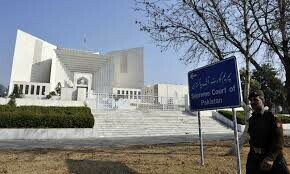WE hope people-to-people contacts and exchange of information will help in improving India-Pakistan relationship. While governments have to play a big role in this regard, non-governmental organisations such as the news media can also make a valuable contribution.
A comparison of the coverage of India in Dawn and Pakistan in The Hindu during May this year reveals fascinating differences between these newspapers. Both newspapers are liberal and are not representative of the news media in their respective countries.
Dawn carried 250 news items, editorials, and opinion pieces and 72 photographs on India compared to 163 items and 17 photographs on Pakistan in The Hindu. Even after excluding IPL news, Dawn published more on India than The Hindu on Pakistan. On some days The Hindu published only one item on Pakistan, but Dawn never published less than four on India. Only on six days The Hindu did carry more news on Pakistan than Dawn on India.
The average length of Dawn’s India-related items was more than The Hindu’s Pakistan-related items. However, the front pages of The Hindu contained more references to Pakistan (16) than references to India on Dawn’s front page (nine).
About half of the India-related items in Dawn were sourced from foreign (including a few Indian) sources. In contrast, less than a fifth of The Hindu’s Pakistan-related coverage was borrowed from foreign sources.
Compared to The Hindu (40pc), more items in Dawn (70pc) were directly about India than items in which India was mentioned in some other context. Around half of the coverage in Dawn was related to sports, art and culture, and business, whereas half of The Hindu’s coverage was related to defence and foreign policy.
Also, India figured in 31 business news items in Dawn compared to only three comparable references to Pakistan in The Hindu. Cotton that dominated India-related business news in Dawn did not figure in The Hindu.
Excluding IPL, defence and foreign policy accounted for 32pc in Dawn’s coverage of India. This is contrary to the common perception that Pakistanis are more likely to be obsessed about national security. At least, Dawn’s editors think otherwise.
However, both newspapers covered their neighbouring country in isolation from rest of the subcontinent and neither gave much space to the problems of ordinary people divided by the border.
The Indian government claims Pakistan-administered Jammu and Kashmir, but there was no news on it in The Hindu, except indirect references in news about terrorism. Similarly, while the Pakistani government accuses India of promoting terrorism in Pakistan and human rights violations in India-administered Jammu and Kashmir, Dawn carried only one item that briefly referred to the former and none on the latter. Also, Dawn’s coverage of India-administered Jammu and Kashmir was limited to Kashmir.
Dawn’s coverage of strategic developments related to India, particularly, on the Indian prime minister’s Iran visit, hinted at the divide between the civilian and military thinking in Pakistan.
Dawn published six editorials and 30 opinion pieces related to India, compared to six editorials and 19 opinion pieces related to Pakistan in The Hindu. One fifth of Dawn’s opinion pieces on India were written by Indians, compared to only one by a Pakistani in The Hindu.
Dawn also republished five opinion pieces from Indian, Bangladeshi, and US newspapers.
Opinion pieces in Dawn specifically discussed India’s politics, elections, media, performance of government, and defence and foreign policy, whereas The Hindu’s opinion pieces talked about Pakistan in the context of terrorism and other countries, never as a country deserving independent attention.
To conclude, neither newspaper adopted a hawkish approach on any issue. Yet, compared to The Hindu’s coverage of Pakistan, Dawn provided greater and more diverse coverage of India in terms of issues and sources of information and opinions.
It seems Indians are losing interest in Pakistan. They have given up hope and are not keen to know about Pakistan unless something bad happens. As Rajiv Dogra, a former Indian Consul General in Karachi said, “For a people who claim shared ancestry, Indians are strangers to the pulse of Pakistan.”
A complete version of this article appeared on The Hoot (http://www.thehoot.org/research/media-monitoring/how-pakistans-dawn-covers-india-9442) on June 22.
The writer is an independent researcher based in Bengaluru.
Published in Dawn, June 26th, 2016















































Dear visitor, the comments section is undergoing an overhaul and will return soon.